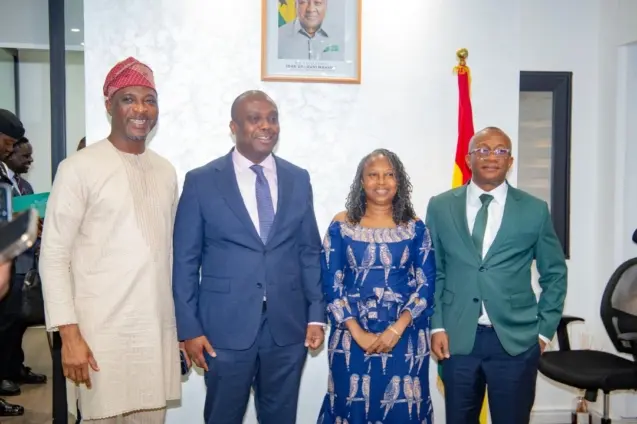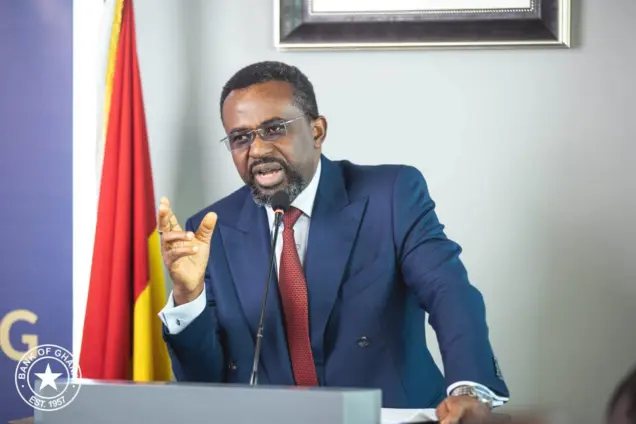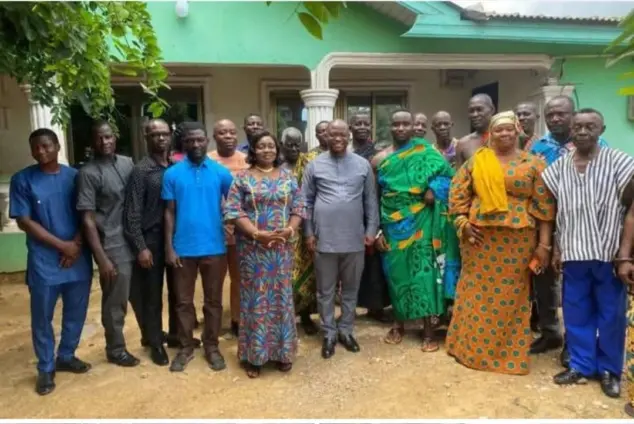Ghana’s energy sector grapples with persistent challenges in revenue mobilization, hindering its financial sustainability and overall performance. Losses plague the system, impacting the nation’s ability to invest in crucial infrastructure and provide reliable power to its citizens. Addressing these issues has become a top priority for the government, leading to a renewed focus on strategic partnerships. The key? Encouraging private sector power distribution in Ghana.
At the recent ChargeUp 2025 forum, a significant step towards this goal was announced. Richard Gyan-Mensah, the Deputy Minister for Energy and Green Transition, outlined the government’s commitment to leveraging private sector expertise to enhance revenue collection and improve service delivery within the power distribution sector. This initiative aims to usher in a new era of efficiency and financial stability for Ghana’s energy landscape.
The Deputy Minister’s announcement at ChargeUp 2025 signals a potentially transformative approach to addressing the deep-seated financial challenges within Ghana’s energy sector. By strategically involving the private sector in power distribution, the government hopes to unlock new efficiencies, improve revenue collection, and ultimately deliver a more reliable and affordable electricity supply to consumers.
Ghana’s Energy Sector Challenges and the Need for Private Sector Involvement
The Deputy Minister for Energy and Green Transition, Richard Gyan-Mensah, has been particularly vocal about the persistent challenges in revenue mobilization within the energy sector. These issues not only impact the financial health of the energy providers but also hinder the government’s ability to invest in essential infrastructure upgrades and expand access to electricity across the country. The ChargeUp 2025 event, organized by TextGenesys Limited (TGL), provided a platform to discuss these challenges and explore innovative solutions.
“Ineffective revenue mobilization has a significant impact on our energy sector’s ability to operate sustainably,” Gyan-Mensah stated, highlighting the urgency of addressing these issues.
The government has expressed a strong commitment to implementing prudent fiscal measures and actively seeks to leverage the expertise and resources of the private sector. This approach aims to achieve a dual objective: enhancing operational efficiency within the energy sector while simultaneously ensuring the protection of consumer interests. This commitment reflects a broader strategy to create a more sustainable and financially robust energy sector that can effectively meet the growing demands of Ghana’s economy and population. ChargeUp 2025 served as a crucial forum for bringing together key stakeholders, including government officials, private sector representatives, and industry experts, to foster collaboration and explore innovative strategies for tackling these challenges.
The Government’s Strategy for Private Sector Participation in Power Distribution
A crucial element of the government’s strategy is to clarify the role of the Electricity Company of Ghana (ECG) in this new paradigm. The Deputy Minister emphasized that ECG will remain a vital operational entity, with private sector involvement focused on specific distribution activities rather than a complete takeover. This nuanced approach aims to leverage private sector expertise without disrupting the existing infrastructure and workforce of ECG.
“It’s not about ceding a fixed percentage of ECG,” the Deputy Minister clarified. “Generation and transmission remain firmly under state control. We are exploring strategic partnerships to enhance the efficiency of distribution activities.”
The involvement of the private sector is intended to complement ECG’s existing operations, focusing on areas where private companies can bring specialized expertise and innovative solutions. The Deputy Minister emphasized that ECG does not manage the entire value chain alone, creating opportunities for collaboration and shared responsibility. Companies like TextGenesys Limited (TGL) are already playing a role in this complementary approach, utilizing digital platforms to address inefficiencies in ECG’s revenue systems. Michael Acolatse of TGL explained that their unified vending platform and universal card reader are designed to streamline revenue collection and improve transparency.
How Digital Solutions are Enhancing Revenue Collection
Companies like TextGenesys Limited (TGL) are at the forefront of using digital solutions to address these revenue collection challenges. TGL’s unified vending platform represents a significant step forward in streamlining the process of selling electricity. This platform allows vendors to sell electricity for various meter types through a single, user-friendly interface. This eliminates the need for vendors to manage multiple systems and reduces the potential for errors. For offline meters, TGL offers a universal card reader solution, ensuring that even customers with older meter technology can benefit from improved vending services.
Recognizing the financial barriers that can prevent vendors from adopting new technologies, TGL has partnered with funding partners like GCB Bank to provide support and enable vendors to operate without significant upfront capital. This innovative approach not only makes it easier for vendors to participate but also expands access to convenient and reliable electricity vending services for consumers.
These digital platforms simplify the power vending process, leading to enhanced revenue collection and improved transparency. By making it easier for customers to purchase electricity and for vendors to manage their operations, TGL and similar companies are making a significant contribution to Ghana’s energy sector’s financial sustainability.
The government’s commitment to private sector participation in Ghana’s power distribution marks a significant step towards improved revenue mobilization and enhanced service delivery. ChargeUp 2025 served as a crucial platform for stakeholders to align on this shared vision. By fostering collaboration and embracing innovative solutions, Ghana is paving the way for a more financially sustainable and customer-centric energy sector. The focus on private sector power distribution Ghana has the potential to unlock significant improvements in efficiency, revenue collection, and customer experience.
Image Source: MYJOYONLINE





















